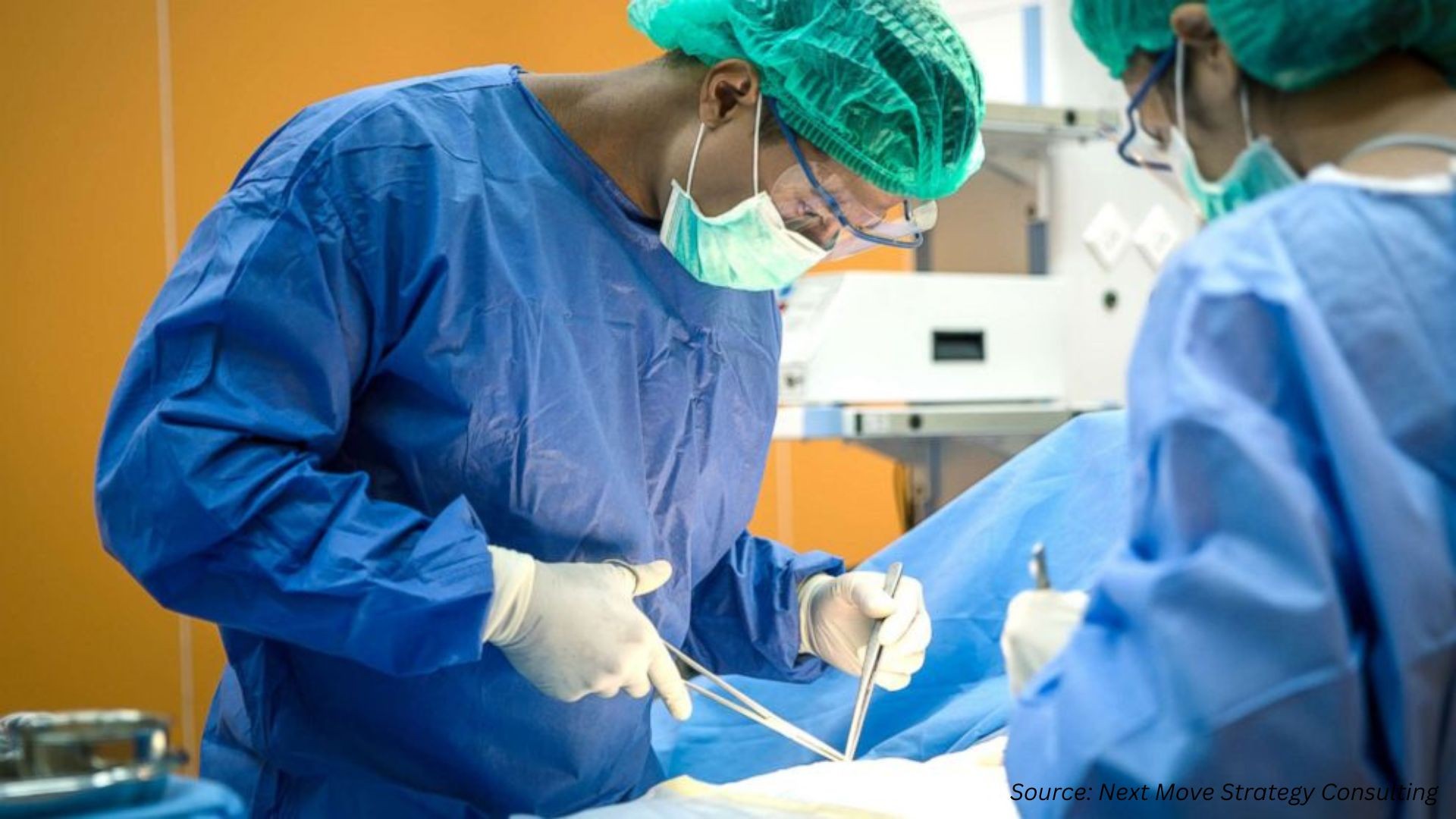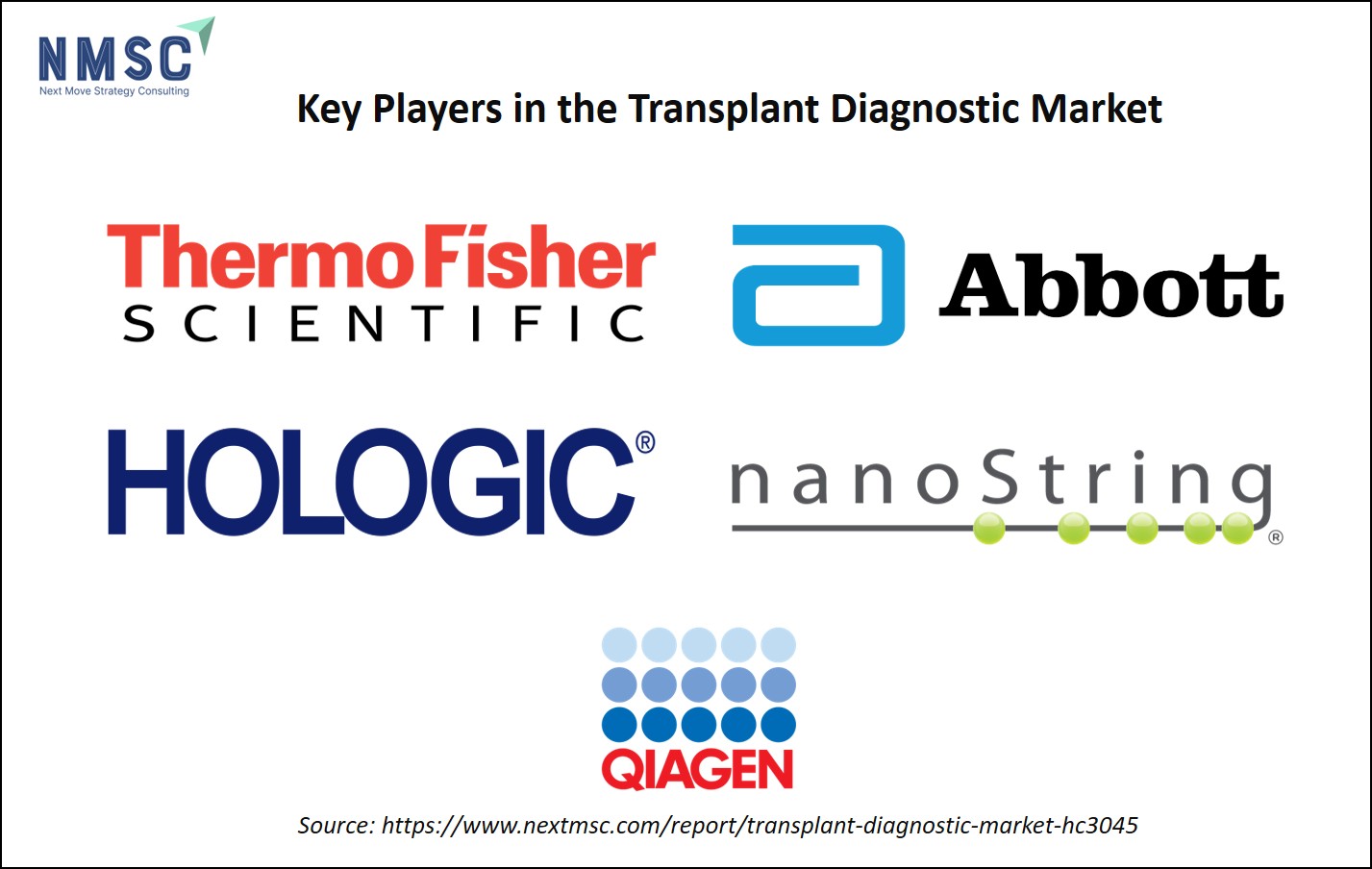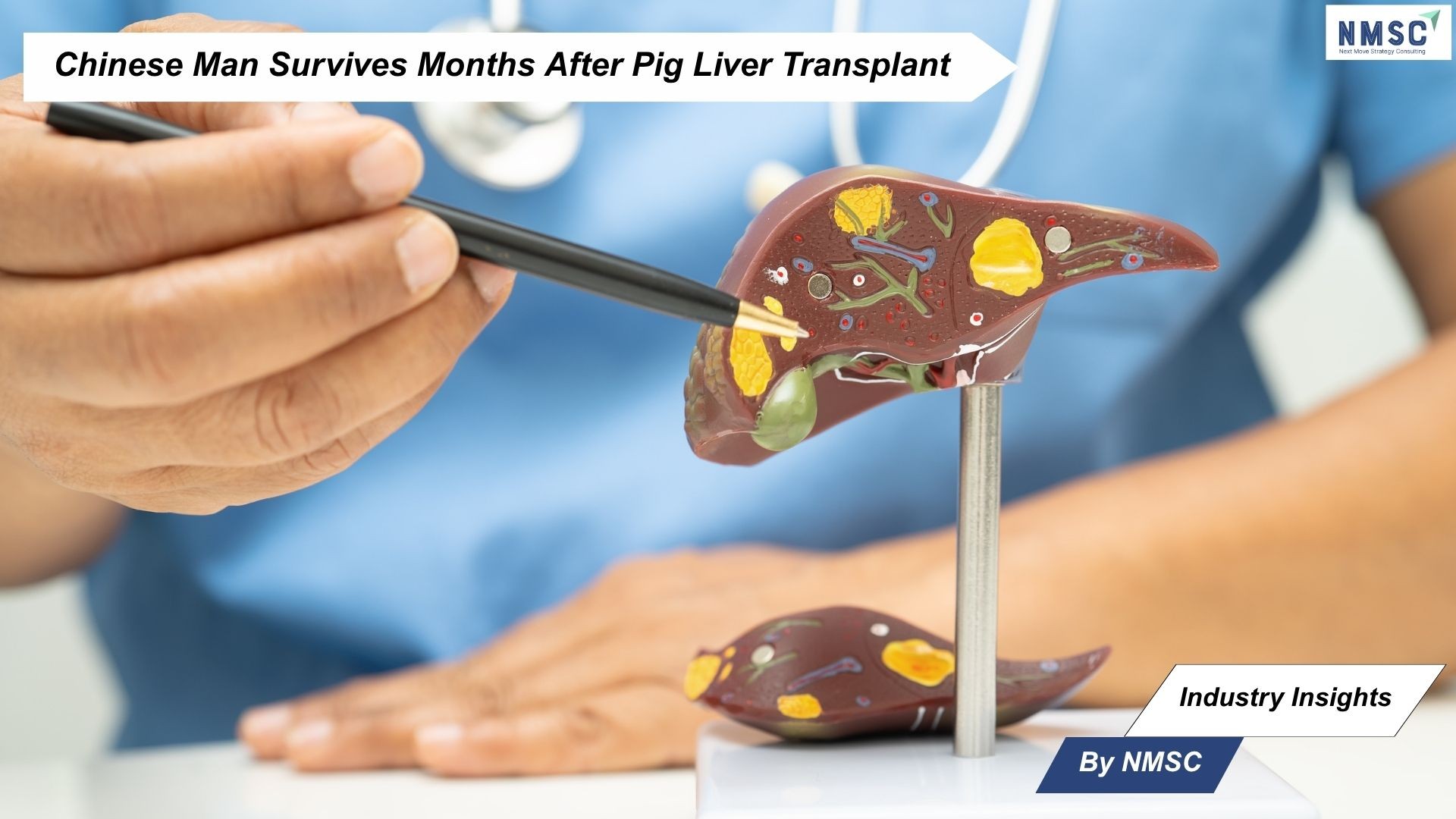Transforming Transplant Diagnostics with Precision and AI
Published: 2025-10-14

The global Transplant Diagnostic Market is entering a transformative phase in 2024–2025, marked by the integration of machine learning, molecular analysis, and non-invasive liquid biopsies. These advancements are setting new standards for accuracy and speed in detecting organ rejection—one of the most critical challenges in post-transplant care.
Recent innovations such as Thermo Fisher Scientific’s Molecular Microscope Diagnostic System for Lung (MMDx Lung) and the Georgetown University–MedStar Health liquid biopsy study signal a decisive shift toward data-driven, minimally invasive diagnostics that enable clinicians to make timely, individualized treatment decisions.
Latest Developments (2024–2025): Toward Data-Driven Diagnostics
Thermo Fisher Scientific has introduced the Molecular Microscope Diagnostic System for Lung (MMDx Lung), a new diagnostic test designed to enhance the evaluation of lung transplant biopsies and aid in detecting signs of rejection and injury in patients. According to the company, existing diagnostic methods often face limitations, with studies showing that pathologists reach only about 18% agreement when assessing acute rejection in lung biopsy samples.
The MMDx Lung system aims to overcome these challenges by leveraging machine learning (ML) to analyze gene expression data from lung biopsy tissues, offering a more objective and data-driven approach to diagnosis. Liver transplantation is a life-saving procedure, yet many patients continue to face the risk of organ rejection and other complications. In a recent breakthrough, researchers from Georgetown University and MedStar Health have demonstrated that a single blood sample could help detect these issues at their earliest stages, enabling personalized treatments to prevent organ failure.
Supported in part by the National Institutes of Health, the study marks a significant advance toward developing a liquid biopsy capable of rapidly identifying post-transplant complications and determining their underlying causes — potentially reducing the reliance on invasive diagnostic procedures.
Applications Across Clinical and Research Settings
The new generation of transplant diagnostics is expanding across multiple applications, including:
-
Post-Transplant Monitoring: Molecular and liquid biopsy systems are enabling clinicians to track organ health in real time, identifying early signs of rejection and tailoring immunosuppressive therapy.
-
Clinical Research: Data-driven diagnostics are providing researchers with rich genomic and transcriptomic insights into organ function, fostering innovation in therapeutic development.
-
Hospital and Laboratory Integration: Advanced diagnostics like MMDx Lung are being integrated into hospital laboratory workflows, enabling high-throughput, standardized assessment of biopsy samples.
-
Personalized Treatment Planning: The ability to correlate molecular signatures with rejection patterns helps in customizing immunosuppressive regimens and improving graft survival rates.
As precision diagnostics become more accessible, healthcare institutions are shifting from reactive treatment toward preventive and predictive care models—a major milestone for the transplant field.
Regional Overview of Advanced Transplant Diagnostic Innovations
|
Diagnostic / Study |
Key Region / Country |
Organization / Company |
Notes |
|
MMDx Lung |
USA |
Thermo Fisher Scientific |
Developed and launched in the U.S.; targets lung transplant diagnostics |
|
Liver transplant liquid biopsy |
USA |
Georgetown University, MedStar Health |
Research conducted in U.S.; NIH-supported study |
Key Players and Strategic Developments
Thermo Fisher Scientific
-
Strategy: Expansion of the molecular diagnostic portfolio through the launch of the MMDx Lung system, leveraging AI and gene expression profiling for objective diagnostic insights (MMDx Lung product details).
-
Impact: The innovation strengthens Thermo Fisher’s leadership in transplant diagnostics, aligning with the company’s broader precision medicine strategy.
Others Key Players
Key companies active in the transplant diagnostics sector include Abbott Laboratories, Qiagen NV, Hologic Inc., and NanoString Technologies, Inc.
Future Prospects: The Shift Toward Predictive Transplant Medicine
The next evolution of the transplant diagnostic market lies in predictive analytics and molecular automation. The integration of multi-omics data—combining genomic, transcriptomic, and proteomic markers—will enable clinicians to predict rejection risk before symptoms emerge.
Moreover, as healthcare systems transition toward value-based care models, the economic and clinical advantages of early detection will make molecular and liquid biopsy diagnostics central to transplant protocols.
-
Thermo Fisher’s MMDx platform may extend its framework beyond lung transplants to kidney and heart applications, enhancing cross-organ diagnostic consistency.
-
Liquid biopsy research led by Georgetown and MedStar Health may pave the way for universal, blood-based surveillance tools that could significantly reduce the need for invasive biopsies.
The convergence of AI, genomics, and precision diagnostics marks the dawn of a new era of transplant care—one defined by speed, accuracy, and patient-specific insight.
Impact on the Transplant Diagnostic Market
The transplant diagnostic market is witnessing a strong positive impact due to the integration of advanced technologies such as machine learning, molecular profiling, and liquid biopsies. These innovations are reshaping post-transplant care by improving diagnostic accuracy, reducing invasive procedures, and enabling personalized treatment strategies. The market is benefiting both from increased adoption in healthcare institutions and growing investment in research and development.
Key Positive Impacts:
-
Enhanced Accuracy: AI-driven molecular diagnostics, like Thermo Fisher’s MMDx Lung, reduce human error and provide objective assessments of organ rejection.
-
Non-Invasive Monitoring: Liquid biopsy methods allow early detection of complications through a simple blood test, minimizing patient risk.
-
Faster Decision-Making: Rapid diagnostics accelerate clinical decisions, improving graft survival and patient outcomes.
-
Expanded Market Adoption: Hospitals and research institutions are increasingly integrating advanced diagnostic tools into routine workflows.
-
Stimulated R&D Investment: Rising interest in predictive and personalized diagnostics is attracting biotechnology startups and fostering innovation.
While the overall impact is positive, the market faces challenges that must be addressed for sustained growth:
-
High Costs: Advanced diagnostic tools may have significant upfront costs, limiting accessibility in low-resource regions.
-
Regulatory Hurdles: Approval processes for new AI-driven diagnostics can slow market entry.
-
Data Integration Needs: Multi-omics data require robust infrastructure and expertise to be effectively implemented in clinical settings.
Overall, the transplant diagnostic market is positioned for robust growth, driven by technological innovation, a shift toward precision medicine, and rising global demand for better post-transplant care.
About Next Move Strategy Consulting:
Next Move Strategy Consulting is a premier market research and management consulting firm that has been committed to provide strategically analysed well documented latest research reports to its clients. The research industry is flooded with many firms to choose from, what makes Next Move different from the rest is its top-quality research and the obsession of turning data into knowledge by dissecting every bit of it and providing fact-based research recommendation that is supported by information collected from over 500 million websites, paid databases, industry journals and one on one consultations with industry experts across a diverse range of industry sectors. The high-quality customized research reports with actionable insights and excellent end-to-end customer service help our clients to take critical business decisions that enables them to move beyond time and have competitive edge in the industry.
We have been servicing over 1000 customers globally that includes 90% of the Fortune 500 companies over a decade. Our analysts are constantly tracking various high growth markets and identifying hidden opportunities in each sector or the industry. We provide one of the industry’s best quality syndicate as well as custom research reports across 10 different industry verticals. We are committed to deliver high quality research solutions in accordance to your business needs. Our industry standard delivery solutions that ranges from the pre consultation to after-sales services, provide an excellent client experience and ensure right strategic decision making for businesses.
For more information, please contact:
Next Move Strategy Consulting
5th Floor 867
Boylston St, STE 500,
Boston, MA 02116, U.S.
E-Mail: [email protected]
Direct: +18577585017
Website: www.nextmsc.com
About the Author
 Karabi Sonowal is an accomplished SEO Executive and Content Writer with extensive expertise in digital marketing, SEO strategies, and audience engagement. She specializes in creating data-driven campaigns and impactful, audience-focused content that boosts visibility, drives traffic, and adds measurable value. With a strong focus on clarity and innovation, she combines strategic thinking with content creation to deliver meaningful digital experiences. Over the years, she has contributed to brand growth initiatives, driving lasting impact and engagement.
Karabi Sonowal is an accomplished SEO Executive and Content Writer with extensive expertise in digital marketing, SEO strategies, and audience engagement. She specializes in creating data-driven campaigns and impactful, audience-focused content that boosts visibility, drives traffic, and adds measurable value. With a strong focus on clarity and innovation, she combines strategic thinking with content creation to deliver meaningful digital experiences. Over the years, she has contributed to brand growth initiatives, driving lasting impact and engagement.
About the Reviewer
 Debashree Dey is a versatile Content Writer, PR Specialist, and Assistant Manager in Digital Marketing, known for her ability to craft audience-focused narratives and develop data-driven strategies that enhance brand visibility. As a published manuscript author, she combines creativity
with strategic acumen to help brands strengthen their presence and drive deeper user engagement. Outside of her professional pursuits, Debashree draws inspiration from creative projects and design explorations.
Debashree Dey is a versatile Content Writer, PR Specialist, and Assistant Manager in Digital Marketing, known for her ability to craft audience-focused narratives and develop data-driven strategies that enhance brand visibility. As a published manuscript author, she combines creativity
with strategic acumen to help brands strengthen their presence and drive deeper user engagement. Outside of her professional pursuits, Debashree draws inspiration from creative projects and design explorations.

















Add Comment